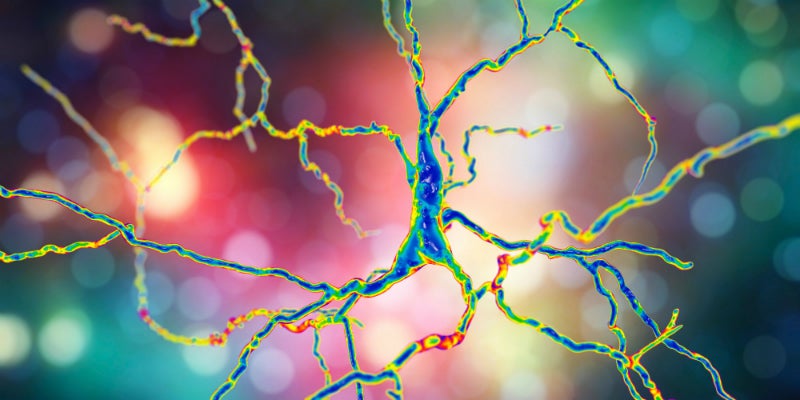Huntington’s disease is caused by a faulty gene that causes damage to parts of the brain over time. While current Huntington’s disease treatment options offer only symptomatic relief, this indication has the potential to benefit from gene therapy, which might offer a cure.
Early glimpses of potential curative therapy were made available recently when UniQure presented pre-clinical results that demonstrated its gene therapy, AMT-130, had the potential to lower the levels of the toxic huntingtin protein that causes the disease.
The pre-clinical studies evaluated multiple animal models of the disease, including mini-pigs and mouse. They also evaluated neurons that were derived from induced pluripotent stem cells (iPSC) of patients with Huntington’s disease. Collective results from these individual studies were able to demonstrate the potential of AMT-130 to target the toxic protein fragment and widespread distribution of the vector. The results also highlighted the potential of magnetic resonance spectroscopy as imaging biomarkers for such studies.
Roche, Wave Life Sciences, and uniQure each have a gene therapy in different stages of clinical development (Phase I to Phase III) for Huntington’s disease, according to GlobalData’s Intelligence Center. Roche’s RG-6042 is at the most advanced stage and is currently undergoing evaluation in Phase III trials. However, that should not deter uniQure’s approach, as RG-6042 is an antisense oligonucleotide (ASO) that is expected to be administered frequently via an intrathecal route while AMT-130 is understood to be a single administration therapy. If Biogen’s ASO for spinal muscular atrophy (SMA), Spinraza (nusinersen), and Novartis’ one-off therapy Zolgensma (onasemnogene abeparvovec-xioi) can be used as a case study, it is likely that AMT-130 has a better chance of garnering blockbuster sales compared to RG-6042, although the latter is likely to enter the market first and will thus have a first-to-market advantage.
Key opinion leaders (KOLs) who were interviewed for GlobalData’s Gene Therapies in Neurology report had generally positive opinions about these therapies, especially given that Huntington’s disease is a monogenic disease. In the absence of disease-modifying therapy, a curative therapy is undoubtedly likely to be well received. However, KOLs also insisted that such therapy should have a favourable safety and efficacy profile.
In the wider conversation about such promising gene therapies, pricing is expected to be an important sticking point. However, the recent commercial success experienced by Zolgensma in the US market is likely to boost the confidence of companies that invest in these pioneering programs. Thus, these therapies will be able to help to address the unmet needs posed by Huntington’s disease, as well as other diseases that are caused by underlying genetic factors.

US Tariffs are shifting - will you react or anticipate?
Don’t let policy changes catch you off guard. Stay proactive with real-time data and expert analysis.
By GlobalData




